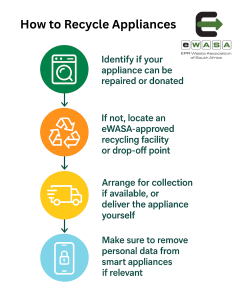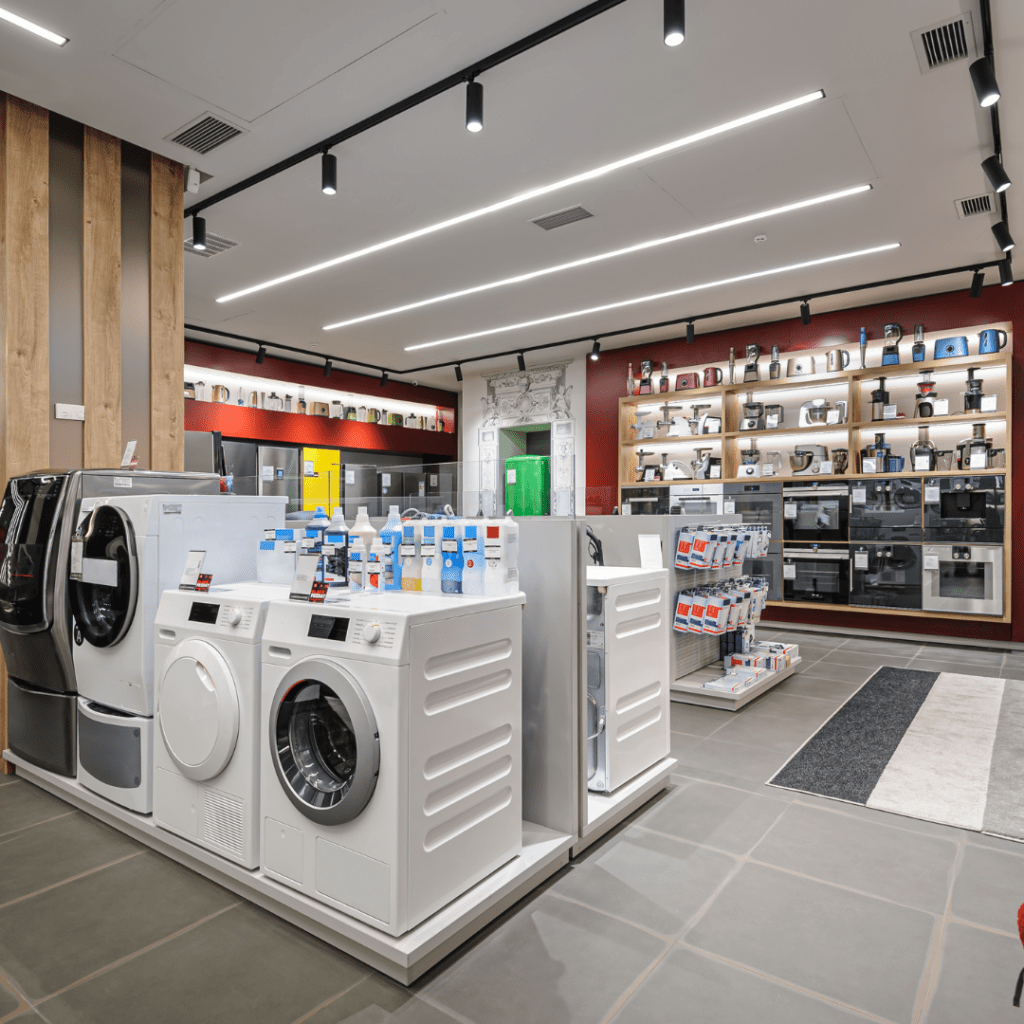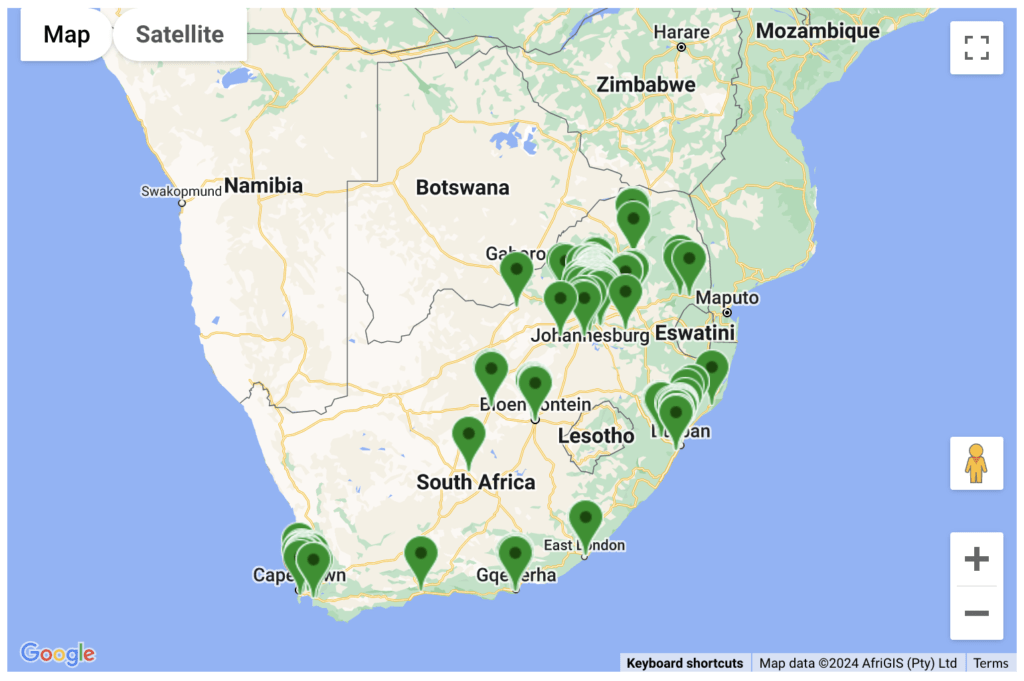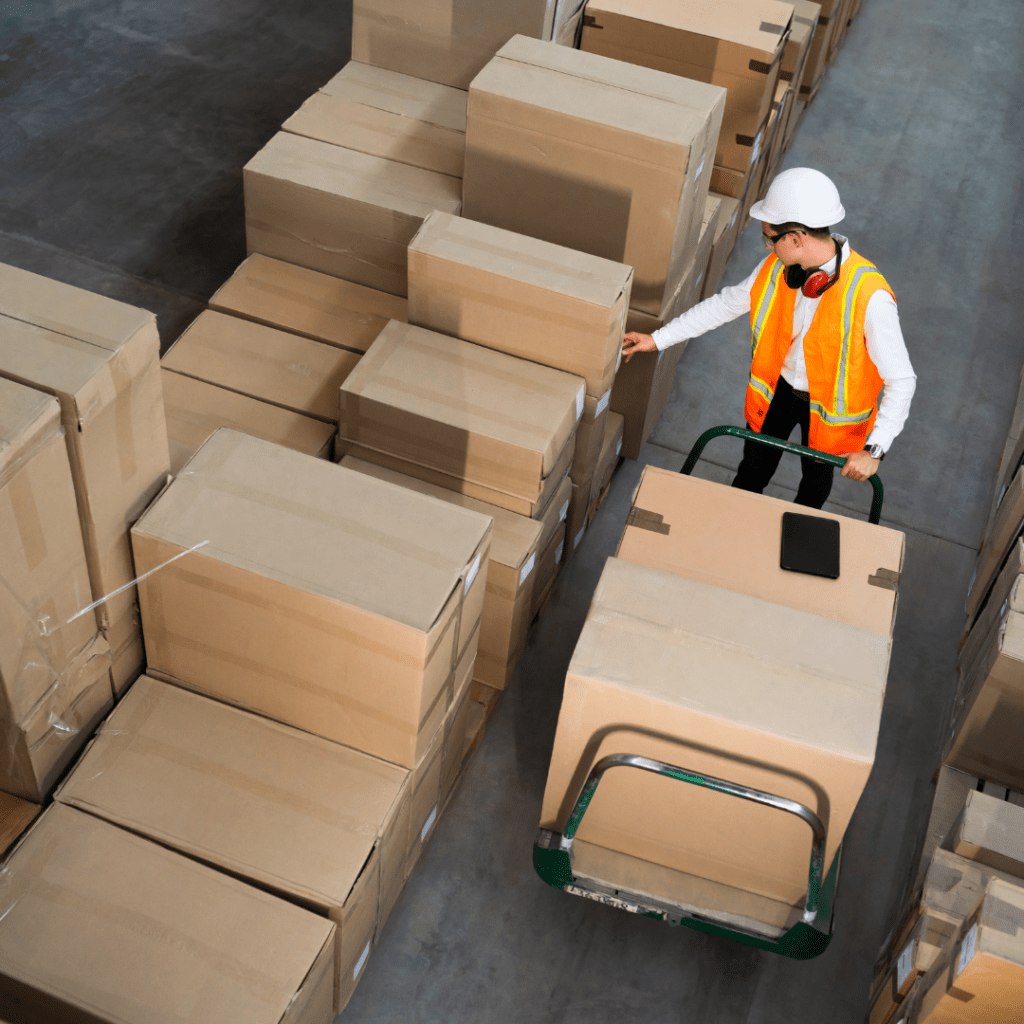What to Do With End-of-Life Appliances in South Africa
Currently, dozens of home appliances are malfunctioning. Washing machines whine in protest, fridges dribble dirty water on floors, and dishwashers come to a burning stop. Sadly, every shiny new gadget we buy must eventually meet its end. But what do we do with these husks of technology once they no longer serve us?
Putting them on the pavement and hoping for the best might be a popular answer, but it’s not always a good one. Sending broken appliances to a registered e-waste recycling company is a far better option.
Three Reasons Why You Should Recycle Old Appliances
Appliances including washing machines, fridges, dishwashers, microwaves, air fryers and freezers, don’t belong in landfill. In fact, since 2021, disposing of e-waste in South African landfills has been prohibited. Instead, end-of-life appliances should be recycled, and here’s why:
1. Protecting the environment
Recycling prevents harmful substances such as refrigerants and mercury from leaking into the soil, air, and water, where they can cause lasting damage.
2. Recovering valuable resources
Old appliances are rich in recoverable materials such as metals, glass, and critical resource materials (CRMs). These include lithium, cobalt, and graphite in batteries, rare earth elements (REEs) used for magnets in motors, and copper that ensures reliable wiring and power connections. Recycling keeps these resources in circulation, reducing the need for new extraction and strengthening the economy.
3. Creating local jobs
By supporting recycling initiatives, you’re helping to grow small and medium enterprises in the waste sector, which in turn creates employment opportunities and supports livelihoods.
What About Electronics and Smaller Devices?
Large appliances are not the only things you should recycle – microwaves, toasters, kettles, laptops, screens, and TVs are suitable too. In fact, the latest e-waste statistics show that small equipment is the biggest contributor to e-waste worldwide. Many of these items contain metals that can be recovered and used to make something new.

How the Appliance & Electronics Recycling Process Works
Recycling is all about recovering valuable materials from waste. The first stage is dismantling the appliances or electronics into seven different groups of materials:
- Ferrous metals (metals that contain iron, for example: steel)
- Non-ferrous metals (eg: copper and aluminium)
- Plastics
- Copper cabling
- Glass and monitors
- PC boards
- Packaging
Once the machines have been dismantled, the waste reclaimers sell items from each of the seven groups to specialist recyclers that can extract further resources from them. These resources become secondary raw materials manufacturers can use to make new products.
Where To Recycle End-of-Life Appliances and Electronics in SA
The EPR Waste Association of South Africa (eWASA) represents retailers, recycling companies, and community organisations nationwide. Its members have over 1 000 drop-off points to help consumers recycle appliances, electronics, lighting, batteries, and more. See our handy map of drop-off sites at the bottom of our homepage or members’ list to find a registered e-waste recycler near you.
Look for Certified Recyclers
When you dump broken electronics and appliances on the pavement, they often end up in informal recycling yards. However, a recent Johannesburg study found that only 3% of waste pickers have been trained to dismantle e-waste safely. Registered recyclers, on the other hand, must uphold high health and safety standards and process e-waste in an environmentally sound way.
If you want to use a registered recycler while still supporting waste pickers, consider an eWASA-accredited company. We work closely within the guidelines of the National Environmental Waste Act, which requires the integration of informal reclaimers.
Other Options: Donation, Repair, and Refurbishment
Sometimes, you can get a few more years out of a seemingly broken appliance with the right repair techniques. Before throwing something away, consider calling a professional for advice. Once they’ve diagnosed the problem, you can decide if you still want to replace it; some repairs are much cheaper.
If the problem is fixable but you still want a new machine, consider donating the old one to someone in need. Many charity groups will accept old appliances in working or repairable condition. For example, Taking Care of Business is a South African NPO that accepts broken washing machines, fridges, kettles, microwaves, and more, using them to teach repair skills in underprivileged communities.
The third option for end-of-life appliances and IT tech is refurbishment. Refurbishers are skilled professionals who can restore used devices to nearly new condition through repairs and part replacement. Selling or donating used equipment to refurbishers gives it a second life and allows more people to make use of the technology before it is finally recycled.
Find a Registered Appliance Recycling Company Near You
Recycling is the most eco-friendly way to deal with broken appliances that cannot be repaired. It keeps e-waste out of the environment and helps us recover valuable materials we can use to build a circular economy. To find a drop-off point for old appliances, organize an e-waste collection, or connect with local recyclers or repair companies near you, get in touch with eWASA today.
Use the drop-off map at the bottom of our home page to find an eWASA-affiliated recycler near you.
Use our handy map to find an eWASA-affiliated recycler near you.



